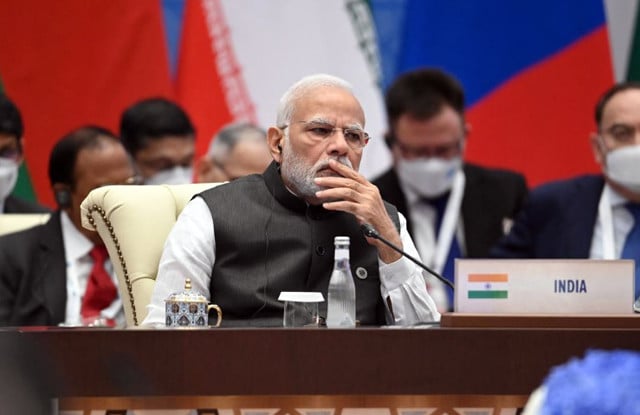 |
| Image Credit | Tribune |
Introduction:
In a testament to the ever-evolving landscape of international diplomacy, India is set to host the Shanghai Cooperation Organization (SCO) Summit virtually, breaking new ground in the realm of global conferences. The decision to conduct the summit virtually comes as a response to the ongoing COVID-19 pandemic, which has necessitated innovative approaches to maintain international dialogue and collaboration. India's role as the host for this virtual summit highlights its growing prominence on the global stage and underscores the importance of virtual platforms in facilitating international cooperation.
A Changing Paradigm:
Traditionally, diplomatic summits have entailed world leaders gathering in a designated host country, providing a platform for face-to-face discussions, negotiations, and the signing of agreements. However, the global pandemic has forced a shift in this paradigm. International conferences, including the United Nations General Assembly and the G20 Summit, have embraced the virtual format, enabling leaders from different nations to convene remotely. By hosting the SCO Summit virtually, India joins the league of nations harnessing technology to maintain vital international interactions.
India's Role as the SCO Summit Host:
India's selection as the host of the SCO Summit is a testament to its growing stature in the international arena. As a full member of the SCO since 2017, India has actively participated in the organization's activities, focusing on regional security, economic cooperation, and cultural exchanges. By hosting the summit, India aims to strengthen its diplomatic ties with SCO member states, deepen its regional influence, and contribute to the organization's goals of fostering stability, security, and development in the region.
The Advantages of a Virtual Summit:
While face-to-face interactions have long been considered the gold standard for diplomacy, virtual summits offer several advantages in the current global context. Firstly, the virtual format eliminates logistical challenges such as travel arrangements, security concerns, and extensive infrastructure requirements. Leaders can participate from their respective countries, ensuring their safety and well-being. Secondly, virtual summits enhance inclusivity by allowing a wider range of stakeholders to participate, including ministers, experts, and representatives from civil society organizations. This increased participation fosters greater engagement and enables a more diverse range of perspectives to be heard.
Challenges and Mitigation:
Virtual summits are not without their challenges. The absence of direct, in-person interactions can diminish the informal exchanges and personal connections that often pave the way for productive diplomatic negotiations. To mitigate this, organizers can leverage technology to provide virtual networking spaces and facilitate bilateral meetings between leaders. Additionally, efficient moderation and time management are crucial to ensure meaningful discussions and prevent information overload during the virtual sessions.
Beyond the Pandemic: The Future of Diplomatic Engagement:
The virtual SCO Summit signifies a significant step toward reimagining the future of diplomatic engagement. As the world gradually recovers from the COVID-19 pandemic, hybrid formats that combine elements of virtual and physical meetings are likely to become the norm. This approach will enable a broader range of participants to engage in international conferences, while still allowing for valuable face-to-face interactions when necessary.
Conclusion:
India's decision to host the SCO Summit virtually reflects the evolving landscape of international diplomacy in the face of the ongoing pandemic. By embracing the virtual format, India is demonstrating its commitment to fostering international cooperation and adapting to the challenges of our time. The summit presents a unique opportunity for leaders from the SCO member states to engage in dialogue, strengthen regional ties, and find common ground on pressing issues. As the world moves forward, virtual summits will continue to play a pivotal role in facilitating global collaboration and shaping the future of international relations.


Post a Comment